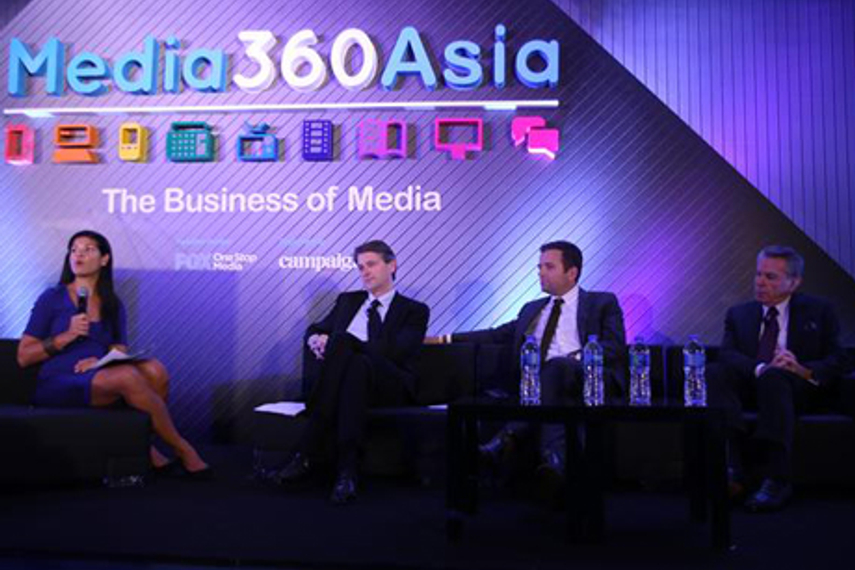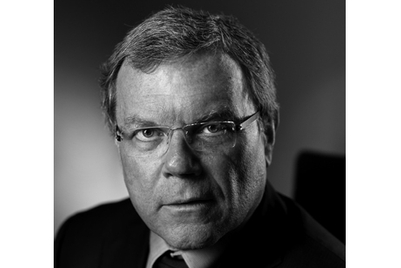
That the media agency of today is significantly different to that of 10, or even five years ago is undeniable. What is less clear is the direction that the business should now be moving in if it is to withstand the continued pressure on rates and offset decreasing margins.
The question formed the subject of debate between three industry giants: Mike Cooper, global CEO of PHD; Irwin Gotlieb, chairman of GroupM; and Steve King, global CEO of ZenithOptimedia, moderated by Campaign Asia-Pacific’s editorial director Atifa Silk. All acknowledged that with the days of straightforward planning and buying being a thing of the past, there was increased onus on agencies to offer services around content and analysis. However, opinions differed as to the specific needs of clients and how to meet them.
King said clients were now looking for agencies to act as “navigational partners”, but cautioned that while they had a responsibility to take the lead, they should not offer too much too soon, but rather grow into that role at a natural pace. “We have to be careful that we don’t try to go too fast, that we don’t say that we can do all of these things. They are very hard to do properly. There is a fantastic opportunity to grow; it is a case of managing change in a way that’s credible, while retaining core clients.”
|
Campaign Asia-Pacific's complete in-depth recap of Media360Asia:
Reactions? Please comment below or tweet @CampaignAsia. |
To that, Cooper noted that although the media business had evolved, clients had experienced even bigger changes to their ways of doing business, adding to the level of complexity for agencies.
“Information moves so quickly,” he observed. “Brands become fashionable and unfashionable so rapidly. They are expected to be good corporate citizens. The pressures are enormous, and as agencies we have to keep pace with that.”
Gotlieb agreed and countered assertions by some in the marketing industry that media agencies had lost a degree of relevance. With the nature of media more complex than ever, companies “need people like us even more to sort through [the numerous] issues and point in the right direction,” he argued. “We’re not in the pure service business any more. We have to put ourselves where we think the puck is going to be and move in that direction; advise clients on what they need to do [to ensure] we deliver a competitive advantage in the future.”
Discussion then moved to whether or not the current agency model was sustainable. King pointed out that in contrast to the business of most client companies, the media sector was still in growth. But he admitted that agencies were also under “enormous pressure” from procurement officers and said it was imperative to stand up and negotiate “the best possible price”.
Opinions differed as to the weighting of the role of the media agency as a visionary partner and as a day-to-day operational entity. Cooper suggested that the primary value of media agencies had shifted to conceptualisation, and that the potential scope for direct involvement in business was now much greater. However, Gotlieb said reliance on big ideas as a business model was unrealistic. “I’m the last one to argue [against] the value of a big idea,” he said. “But they don’t come along with the frequency required to fulfil an enterprise. Companies forget the importance of blocking and tackling. I caution people who see big ideas as [everything]; there are other ways to grow business systematically.”
Gotlieb added that one of the biggest destabilising factors was the increasingly frequent pitching by clients, a practice, many would argue, that is designed primarily to drive down costs. “It’s disruptive to learning and doesn’t contribute to the process,” he said.
Media agencies can still make a compelling case. King said the threat of disintermediation was stronger five years ago. Now, the role of agencies “has become far more ubiquitous than we thought possible” due to their “unique positioning of understanding data and technology”.
The availability of data, Gotlieb agreed, had contributed “to a level of analytics we couldn’t contemplate 15 years ago”. He said the priority now was to use that analytical capacity to “ensure every dollar invested gets a return”. But, he said, disintermediation was still a possibility. The fact that technology companies are encroaching “beyond the edges of our business” underscores the importance of demonstrating tangible returns.
King countered that while data had yielded major opportunities, 95 per cent of organisations were still “doing a bad job” of putting it to practical use. A challenge remains in finding the right people: King said those with the ability to “bring it all together” and act as a single point of contact for clients were still extremely rare. Gotlieb added that media agencies were not top of mind for those in engineering and data mining. “They don’t view our culture as one ideal for career development,” he admitted. “It’s an easier sell today, but talent acquisition has to come in different ways.”
The article first appeared on Campaign Asia







.jpg&h=268&w=401&q=100&v=20250320&c=1)

.png&h=268&w=401&q=100&v=20250320&c=1)
